#anthropological theory
Explore tagged Tumblr posts
Note
so back in 2005-2007 I was an anthropology major, I was told that matriarchies never existed. at the time my professor said that it was kinda sexist that anthropology thought that way. so I wonder if anything has changed since then. I'm not talking about the weird mother goddess cult that hippy 2 wave feminist wanted but like, people who say they are like the muoso (I'm sorry if I spelt that wrong), and other groups. I've heard several native Americans from varrying nation that said their culture was matriarchal, and if modern anthropologist are taught that the experts on society are the people in that society, why do/did anthropologist decided a matriarchal society was impossible. I know this could take a long time to answer so if it's too long for you maybe just some helpful links to an article if you know of one.
So the answer—as always, with anthropology—is complicated.
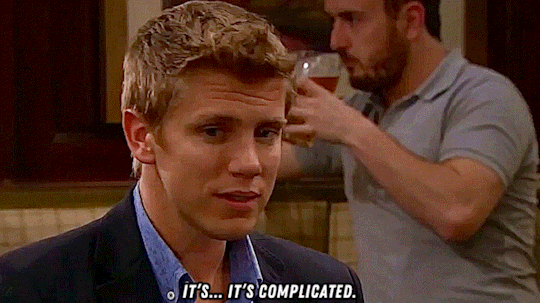
Saying that XYZ never happened is difficult, given that all it takes is one positive instance to disprove the statement. Yes, there certainly have been (and still are) matriarchal societies. (Please also keep in mind that matriarchal societies aren't inherently better that patriarchal societies based on that one trait alone.)
If I had to guess, what you were told was the product of several theological whiplashes in anthropological theory. And you are indeed correct: some of it has to do with Second Wave Feminism. Archaeology and anthropology have been unfortunately late to the ballgame, and feminism is one of those topics.
Basically, for a long time anthropology was dominated by rich white dudes who believed that men were the center of all anthropological innovations ever (more or less, this is the simplified version). Then in the 80s/90s, Second Wave feminists managed to break into the discipline and the stance went from everything is patriarchal to everything is matriarchal.
"Whoa," said the male anthropologists who were feeling Threatened™ "we don't like that at all." Which results in a second over-correction back to the insistence that there was nothing matriarchal. If I had to guess, this is the general series of events that found its way into your classroom in the mid 00s.
If you fancy a deep dive into a good example of early feminist anthropology, check out The Gender of the Gift: Problems with Women and Problems with Society in Melanesia by Marilyn Strathern (first published in 1988). Or, if you're not inclined to read the whole thing, just read the very last five pages titled Comparison. Or you can read a review of the book from shortly after it first came out.
Other anthropologists are encouraged to chime in, and especially tell me if I've said something wrong.
-Reid
726 notes
·
View notes
Text
Are we shaping technology, or is it shaping us? 🤯 Digital Interdependency Theory (DIT) is a new theory I developed to explore this tangled relationship. Building on past social theories and real-world observations, DIT dives into how social media, AI, and algorithms rewire culture, identity, and even our self-worth. From beauty filters to validation economies, tech isn’t just a tool—it’s a force that changes how we see ourselves and each other. Curious? Rethink your digital world. 📱💭

#mis-anthro musings#anthropology#technology#social theory#sociology#anthropological theory#ai#ai technology#digital world#culture#cultural impact#tiktok#tiktok ban#love hate relationship#please let me stop tagging#algorithm why
2 notes
·
View notes
Text
Oh! Oh! I'd like to add to this with Shannon Dawdy's notion of heterogeneous time as a good contrast. The idea is that some places have a sense of pastness, meaning a sensed quality of belonging to/being of more time periods than just the present. This is inherently tied to the places' identity, as opposed to non-places which have been deliberately constructed to have no particular identity of their own.
Dawdy also talks about bubble time, which is similar to Proust’s mémoire involuntaire: a moment in which “the past suddenly lives again, like a haunting.” THIS is part of what you are experiencing when you encounter an image, or an object, or a place that throws you back into a certain moment in time, a visceral memory evoked by some sort of stimuli.
See also lieu de mémoire, a term which is generally used to describe places where the past is held intentionally close to the present through a process of collective memory-making, but I would also argue that a computer room from 2007 can also fit the definition of "a physical place or object which acts as container of memory."
Liminal does not mean a place (or object) that feels like it belongs to multiple temporalities at once. Liminality is a sense of in-between-ness or not-belonging, whereas nostalgia relies on associations with other times and imbued pastness.
For further reading on this, I would highly recommend Dawdy's Patina: A Profane Archaeology, particularly chapters 2 and 5.
Taking away the word “liminal” from nostalgia-bait accounts and so-called “aesthetic” webpages. Liminal is for rest stops. It’s for non-places, like parking garages or paths or BETWEEN PLACES. Your computer room in 2007 is NOT liminal, it’s an extremely specific place and time. The word you’re looking for is “nostalgia bait.”
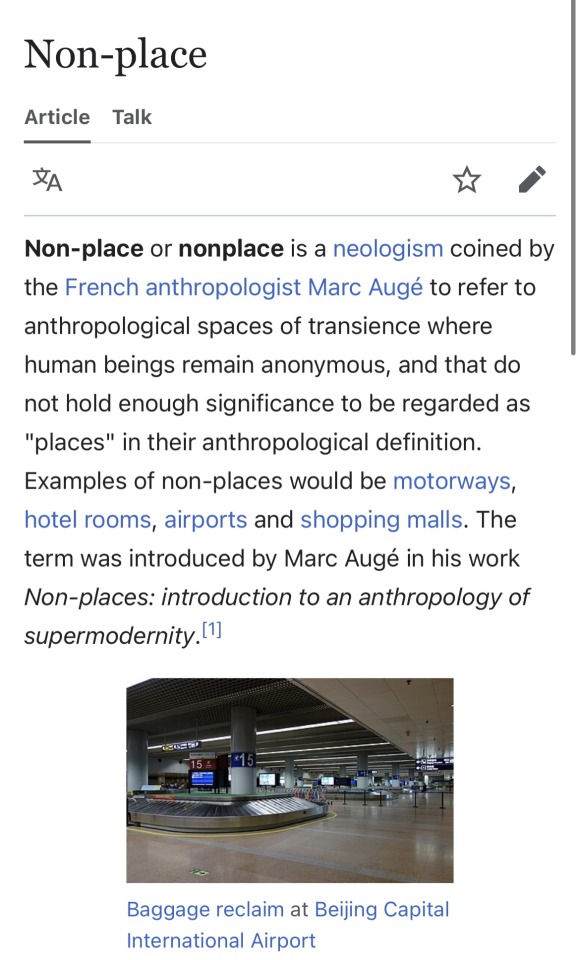
You could also use the word “non-place” for some of these pictures- it is by definition subjective. But again, your family’s living room in 2002 is not it.
10K notes
·
View notes
Text

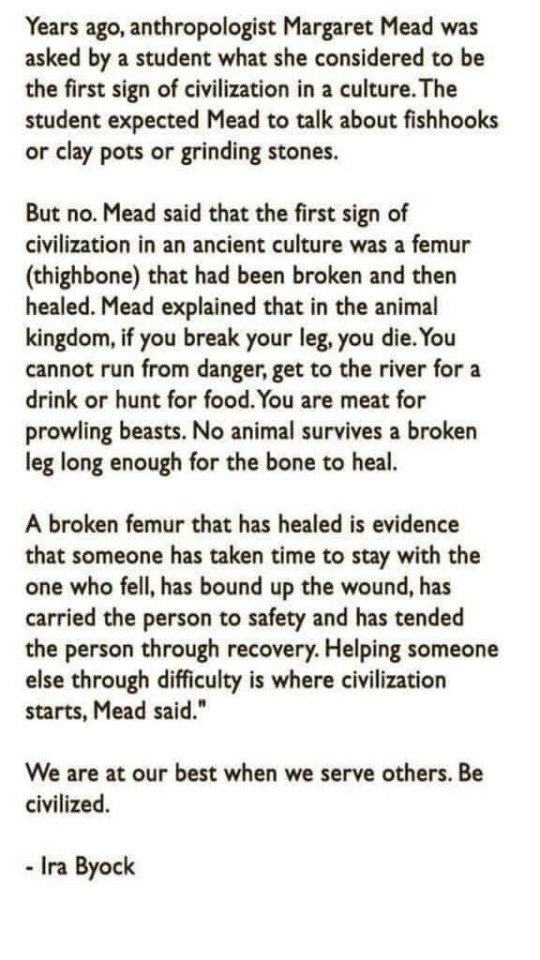
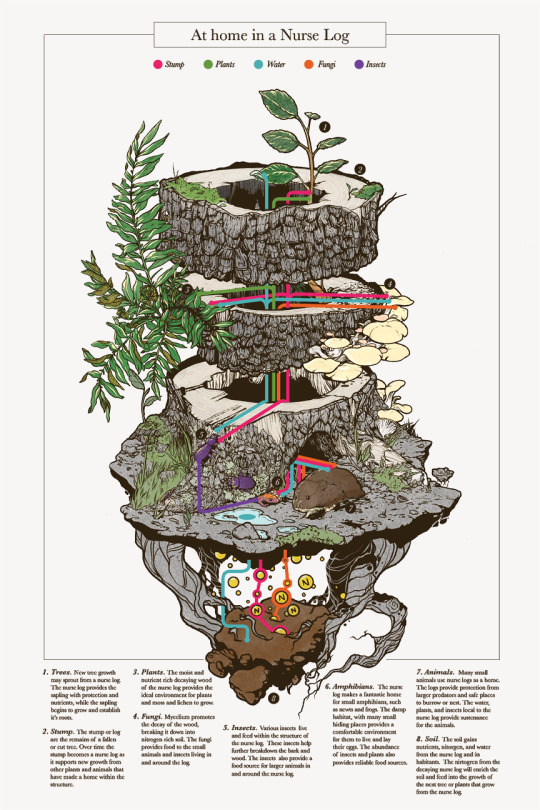
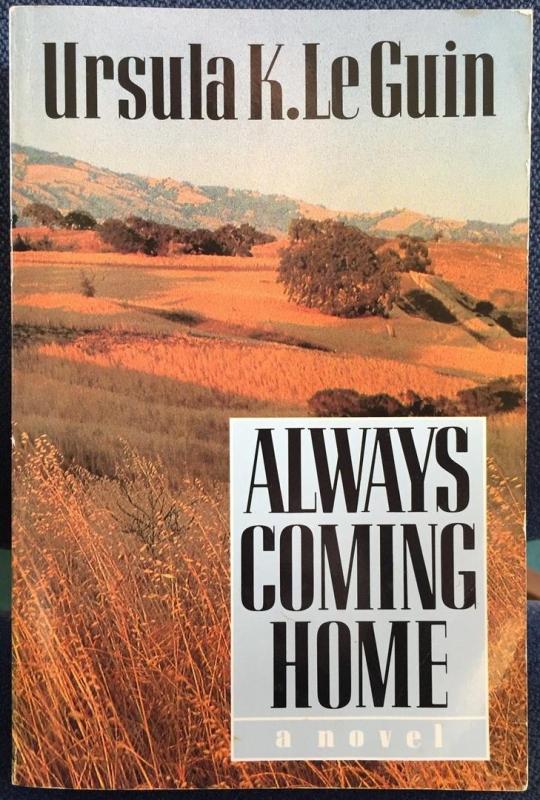
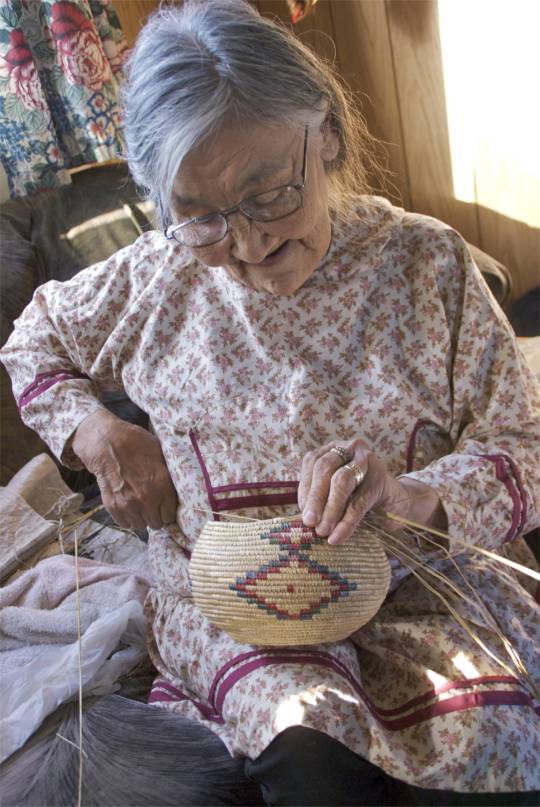

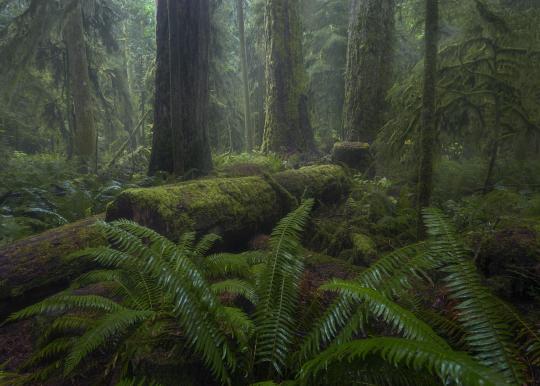
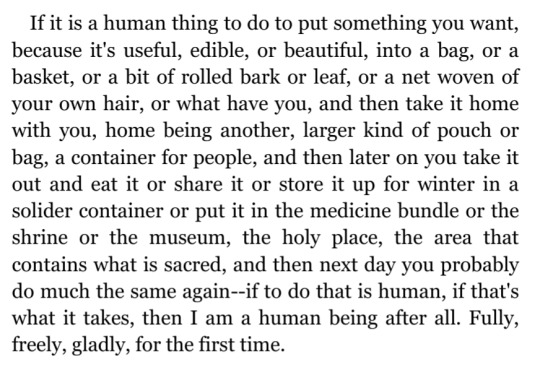





times, places, and practices that I want to learn from to imagine a hopeful future for humanity 🍃
the three sisters (squash, beans, maize) stock photo - alamy // anecdote by Ira Byock about Margaret Mead // art by Amanda Key // always coming home by Ursula K. Le Guin // Yup'ik basket weaver Lucille Westlock photographed by John Rowley // the left hand of darkness by Ursula K. Le Guin // photo by Jacob Klassen // the carrier bag theory of fiction by Ursula K. Le Guin // article in national geographic // the dawn of everything by David Graeber and David Wengrow // braiding sweetgrass by Robin Wall Kimmerer // the birchbark house by Louise Erdrich // photo by John Noltner
I'm looking for more content and book recs in this vein, so please send them my way!
#solarpunk#hopepunk#braiding sweetgrass#just a collection of books and pictures that make me hopeful for the future#margaret mead#robin wall kimmerer#nature#ursula k le guin#ursula k. le guin#the left hand of darkness#the carrier bag theory of fiction#the dawn of everything#anthropology#future#hopecore#native plants#biodiversity#sustainability#eco#eco friendly#louise erdrich#civilization
3K notes
·
View notes
Text
If human beings, through most of our history, have moved back and forth fluidly between different social arrangements, assembling and dismantling hierarchies on a regular basis, maybe the real question should be ‘how did we get stuck?’ How did we end up in one single mode? How did we lose that political self-consciousness, once so typical of our species? How did we come to treat eminence and subservience not as temporary expedients, or even the pomp and circumstance of some kind of grand seasonal theatre, but as inescapable elements of the human condition? If we started out just playing games, at what point did we forget that we were playing?
– David Graeber and David Wengrow, The Dawn of Everything (2021)
#David Graeber#David Wengrow#The Dawn of Everything#Social Theory#Politics#Anthropology#Capitalism#Malaise
87 notes
·
View notes
Text
One facet of Hellenistic and Roman, /Greco Roman paganism that I’ve always found extremely interesting to me, is how inherently human and relatable it’s gods, and their correlating counterparts are, especially when compared to deities in other ancient religions. They are divine, of course, this is made clear enough, but they all have aspects and traits to them that are inherently human. Rage, lust, joy, love, conflict. They represent, if nothing else, key elements of humanity and the human condition, which is something that no other ancient religion I’ve studied quite compares to in the same way. And not only that, but their relationship to people and humans as gods is clearly very symbiotic. They rely on their subjects for their fulfillment, interact with them directly on a regular basis, and often times even respect and revere them as not necessarily always equals, but as at the very least, creatures worthy of their consideration and respect, sometimes even falling in love with, and baring children with them. This is something that doesn’t really happen in any other ancient religion I’ve seen, sure, there are aspects of it in them, but not nearly are they portrayed as objectively or centrally as they are in Hellenism and Roman paganism. Each god represents some aspect of humanity in ways that are inherently non-Devine, Aphrodite is a lover, sometimes desperate to a vulnerable degree you wouldn’t expect a god to be. Dionysus is regularly consumed by madness as a result of his addiction and mental illness, and falls into spirals of depravity that are hauntingly ungodly. Artemis hunts even though she doesn’t need to, she respects her body as a goddess woman just as much as any human woman would, and fights back just as violently as well. Apollo finds much of his joy and happiness through the humans he falls in love with, and faces much of his suffering and sadness through them as well. Persephone fucking dies. maybe not literally in the sense of human, medical death, but absolutely metaphorically, and the grief her mother Demeter experiences is so inherently human, and so shockingly, gut wrenchingly tragic, that it is pretty obvious that this is what her story is meant to represent: a divine allegory for death and grief, an element that so many religions completely separate from their deities. Even Zeus, the primary deity, is a father figure who’s connection and relativity to fatherhood as seen in human men is almost identical. and if it weren’t for the pre-established lore and status of him as a an extremely powerful deity, there are moments in his Mythos where you might even forget that he’s a god, an all powerful, all divine, objectively non human god to begin with. I think it’s what makes Hellenism so emotional and so drawing to me, and to many other pagans, it’s a relationship that is mutual, and relatable, which is an element that is lacking in so many religions, even the major ones like Christianity and Islam. Yes, there are still elements of this in those religions, but it always feels like the stories constantly hammer in the fact that they are divine, so divine, so utterly unrelatable, so inherently disconnected from their subjects and their plights as a superior enitity, that there’s a limit to how connected one can feel to them. In hellenismos, this limit doesn’t seem to exist, and that’s something that makes it so much more personal and fascinating to me than any other religion I’ve studied. The gods are us, and we are the gods. At the end of the day, I think that’s what all religions should be about, and ultimately, are about, wether we realize it or not.
#religious theory#male witch#green witch#paganism#hellenism#witchcraft#druidism#hellenic worship#baby witch#pagan witch#hellenic deities#religious study#anthropology#hellenist#hellenic gods#hellenic paganism#hellenic pagan#hellenic community#hellenic polytheism#hellenic polythiest#hellenic devotion#Hellenic witch#greek mythology#greek deities#religious studies#religious psychology
75 notes
·
View notes
Note
Just saw someone say that RAMCOA "isn't real and is an antisemitic conspiracy theory" which... I don't know. I think that's dismissive of the pervasiveness of Xian abuse and the actual context of RAMCOA. A lot of Xians are involved in organized cults and traffic/abuse people through various means. At the very least I think there is nuance here. I'd like to hear your take though
For those who don't know the acronym, it stands for Ritual Abuse, Mind Control, and Organized Abuse, and was coined by the International Society for the Study of Trauma and Dissociation (ISSTD), and organization with a history of past and present abuse and corruption.
It's not real. It's a conspiracy that began in the 1980s and 1990s with the Satanic Panic. Some corrupt psychologists practiced "repressed memory recovery", where they convinced their patients that they were ritually abused by satanic cults as children, but forgot about it due to trauma. In reality, it's actually very easy to convince someone that they remember something, even when it didn't actually happen. There is no nuance. While cults absolutely do exist, there is no underground network of cults (Christian or otherwise) engaging in occult ritual sacrifices and abuses. To assert that there is leans deeply into antisemitic and xenophobic conspiracy.
Disclaimer: I'm not saying that certain dissociative disorders aren't real. They've existed before the Satanic Panic and before the epidemic of false memory implanting by psychologists. However, people with trauma disorders are very susceptible to manipulation, especially by mental healthcare professionals. Someone can genuinely believe they were kidnapped by a network of occultists, that doesn't mean it actually happened to them. It also doesn't mean that they're malicious liars- false memories can feel very real, and as we've learned, it's quite easy to convince someone of a memory that didn't happen. People who believe they were victims of these things deserve our compassion- the bad-faith actors are the doctors and therapists who manipulated them, not the people suffering from mental illness.
More reading:
Evidence Against Dr. Colin A. Ross
Dangerous Therapy: The Story of Patricia Burgus and Multiple Personality Disorder
Satanic Panic: The Creation of a Contemporary Legend
Martha Ann Tyo v Ross
Satanic Cults, Ritual Abuse, and Moral Panic: Deconstructing a Modern Witch-Hunt
Dutch Investigators Find No Evidence Of Ritual Child Abuse
Supernatural Support Groups: Who Are the UFO Abductees and Ritual-Abuse Survivors?
#psychology#anthropology#satanic panic#conspiracy theories#mental health#ritual abuse#ramcoa#antisemitism
163 notes
·
View notes
Text
It's wild to me how some able-bodied people only think of disabled culture as a concept and they haven't ever actually experienced it. To me the biggest tell that somebody has never experienced disabled culture is their lack of knowledge about something I call Societal Manufactured Disability Theory.
This theory posits that an aspect of disability is manufactured by societal norms, stigmas and labeling.
People with disabilities like myself will tell you that people do treat you differently based solely upon the fact that you are disabled. When my hand writing is too messy to read do to Dysgraphia people assume I'm not trying hard enough to be neat, and if I'm lazy enough to slack with hand writing I must always be lazy. When I tell people I have Dyslexia they think I'm less intelligent, unable to read or incapable of understanding the written word. When I tell people I have a connective tissue disorder which is an invisible disability they think I'm a liar, scheming to take resources away from "real disabled people".
The societal norm here in America is to push forward, laziness is not an option we see it repeatedly in the rhetoric surrounding young people. News sources constantly talking about how "no one wants to work these days" or "young people are taking everything for granted".
There is a huge stigma around having Dyslexia that most people don't notice. In American society where we have a 79% literacy rate it is expected that you can read, so when you can't or you have trouble people think you have a lower IQ. Dyslexia can be genetic so I'm actually a fourth generation Dyslexic from my dad's side with all of them men being the ones to pass it down. My dad has always said that my great grandfather had no support for his Dyslexia, nobody cared and in fact the term Dyslexia was only coined in 1887. When my dad went to school they attempted to alleviate some of the symptoms of Dyslexia by making him watch his hands as he crawled on the floor, believing that the root of the problem was in a lack of eye coordination. To this day I and many other Dyslexics will avoid talking about our diagnosis because of the stigma behind it. I have had many experiences in my life where as soon as people learn that I am Dyslexic they assume that I can't spell anything or that they need to read everything to me. That's what stigma does, it makes people hide away just so they can live in peace and be respected.
It is extremely common for people with invisible disabilities to be labeled as liars, this is mostly due to a lack of education and representation. The general public's idea of disability is limited, but the truth is that disability is one of the most dynamic aspects of human beings. Invisible and dynamic disabilities make up the majority of disabilities; in fact, 1 out of every 3 Americans is in fact disabled. When people see me, a young, healthy-looking man, they never think I'm disabled. If I tell them I am, they may think I am lying. People generally do not like liars, and having such a label attached to your name can be detrimental to your social integration.
You can see that none of those setbacks I mentioned are symptoms of my disabilities. The perceived deviance, stigma, and labeling are not things you'll find on a medical report. However, they do harm me socially and potentially medically when it comes to stigma; these things disable me. Thus, part of my struggle as a disabled person is manufactured by society itself, in the norms we hold and the way we treat others.
I have come to that conclusion repeatedly, as have almost every other disabled person. It's a conclusion that is often reached in the community as a whole. However, it is in able-bodied culture where these stigmas, labels, and perceived attacks originate. So, if someone is completely averse to accepting the Societal Manufactured Disability Theory, it suggests that they have probably never fully been a part of any aspect of disability culture.
#physical disability#learning disability#learning disabilities#disabled#disability#disabilties#disabled culture#disabled community#essay#ableism#stigma#society#sociology#hypermobile ehlers danlos#hypermobile eds#dyslexia#dysgraphia#connective tissue disorder#writing#learning#discrimination#theory#social justice#social theory#text post#education#anthropology#rant#rant post
63 notes
·
View notes
Text
So was anyone going to tell me Nasch's kingdom had a name, or was I just expected to learn about The United Lands Of The Poseidon Ocean by randomly browsing the wiki trying to put together a proposed timeline of the Barian emperors in order of death?
#It has a name??? This changes EVERYTHING#okay maybe I already had it penciled in as being a cross cultural empire somewhere in the mediterranean and possibly parts of the atlantic#but the name 'poseidon' adds SO MUCH MORE evidence to my 'Nasch's kingdom and Jaden's kingdom are anthropologically related' theory#do we think theyre still a nation#are they near New Atlantis#do they have a team at the olympics#these are all equally important questions#yugioh#yugioh zexal#shark kastle#ygo zexal#emperor nasch
29 notes
·
View notes
Note
Hey
Hope you are doing well 😊
Would you like to answer a question regarding the anthropological theories? Since, you are from anthropology student I guess you have studied it in uni.
I have not studied anything related to anthropological theories or sociology in the past.
I have to self-study (I do not have a professor since it's something like self learning course) the anthropological theories.
Well, can you tell me how do we understand those theories in a simple manner. The book is so complicated. We just learn everything they say? And then every theory is being criticised. It's all jumbled in my head.
Hi there dirtling! I'd be happy to take a stab at answering your theory related questions. If there's something that I don't know, chances are someone in anthro/archaeoblr has some good insight too.
-Reid
7 notes
·
View notes
Text

By: Colin Wright
Published: Oct 2, 2023
On September 25, the American Anthropological Association (AAA) and the Canadian Anthropology Society (CASCA) announced that they were cancelling a panel discussion titled “Let’s Talk About Sex, Baby: Why Biological Sex Remains a Necessary Analytic Category in Anthropology,” originally scheduled as part of their annual conference in Toronto from November 15–19. The cancellation and subsequent response by the two organizations shows the extent to which gender ideology has captured academic anthropology.
The panel would have featured six female scientists, specializing in biology and anthropology, to address their profession’s growing denial of biological sex as a valid and relevant category. While terminological confusion surrounding the distinction between sex and gender roles has been a persistent issue within anthropology for decades, the total refusal of some to recognize sex as a real biological variable is a more recent phenomenon. The panel organizers, eager to facilitate an open discussion among anthropologists and entertain diverse perspectives on a contentious issue, considered the AAA/CASCA conference an optimal venue to host such a conversation.
The organizations accepted the “Let’s Talk About Sex” panel without incident on July 13, and planned to feature it alongside other panels including those on politically oriented subjects, such as “Trans Latinx Methodologies,” “Exploring Activist Anthropology,” and “Reimagining Anthropology as Restorative Justice.” Elizabeth Weiss, a professor of anthropology at San José State University, was one of the slated panelists. She had intended to discuss the significance in bio-archaeology and forensic anthropology of using skeletal remains to establish a decedent’s sex. While a 2018 article in Discover titled “Skeletal Studies Show Sex, Like Gender, Exists Along a Spectrum” reached different conclusions, Weiss planned to discuss how scientific breakthroughs have made determining the sex of skeletal remains a more exact science. Her presentation was to be moderate; she titled it “No Bones About It: Skeletons Are Binary; People May Not Be,” and conceded in her abstract the growing need in forensics to “to ensure that skeletal finds are identified by both biological sex and their gender identity” due to “the current rise in transitioning individuals and their overrepresentation as crime victims.”
Despite having already approved the panel, the presidents of the AAA (Ramona Pérez) and CASCA (Monica Heller) unexpectedly issued a joint letter on September 25 notifying the “Let’s Talk About Sex” presenters that their panel was cancelled. They claimed that the panel’s subject matter conflicted with their organizations’ values, jeopardized “the safety and dignity of our members,” and eroded the program’s “scientific integrity.” They further asserted the panel’s ideas (i.e., that sex is a real and important biological variable) would “cause harm to members represented by the Trans and LGBTQI of the anthropological community as well as the community at large.” To ensure that similar discussions would not be approved in the future, the AAA/CASCA vowed to “undertake a major review of the processes associated with vetting sessions at our annual meetings.”
The following day, the panelists issued a response letter, expressing their disappointment that the AAA and CASCA presidents had “chosen to forbid scholarly dialogue” on the topic. They rejected the “false accusation” that supporting the “continued use of biological sex categories (e.g., male and female; man and woman) is to imperil the safety of the LGBTQI community.” The panelists called “particularly egregious” the AAA/CASCA’s assertion that the panel would compromise the program’s “scientific integrity.” They noted that, ironically, the AAA/CASCA’s “decision to anathematize our panel looks very much like an anti-science response to a politicized lobbying campaign.”
I spoke with Weiss, who expressed her frustration over the canceled panel and the two presidents’ stifling of honest discussion about sex. She was concerned about the continual shifting of goalposts on the issue:
We used to say there’s sex, and gender. Sex is biological, and gender is not. Then it’s no, you can no longer talk about sex. Sex and gender are one, and separating the two makes you a transphobe, when of course it doesn’t. In anthropology and many topics, the goalposts are continuously moved. And, because of that, we need to stand up and say, “I’m not moving from my place unless there’s good scientific evidence that my place is wrong.” And I don’t think there is good scientific evidence that there are more than two sexes.
Weiss was not the only person to object. When I broke news of the cancellation on X, it immediately went viral. At the time of writing, my post has more than 2.4 million views, and the episode has ignited public outcry from individuals and academics across the political spectrum. Science writer Michael Shermer called the AAA and CASCA’s presidents’ letter “shameful” and an “utterly absurd blank slate denial of human nature.” Timur Kuran, a professor of economics and political science at Duke University, described it as “absolutely appalling.” Jeffrey Flier, the Harvard University distinguished service professor and former dean of the Harvard Medical School, viewed it as “a chilling declaration of war on scholarly controversy.” Even Elon Musk expressed his disbelief with a single word: “Wow.”
Despite the backlash, the AAA and CASCA have held firm. On September 28, the AAA posted a statement on its website titled “No Place For Transphobia in Anthropology: Session Pulled from Annual Meeting Program.” The statement reiterated the stance outlined in the initial letter, declaring the “Let’s Talk About Sex” panel an affront to its values and claiming that it endangered AAA members’ safety and lacked scientific rigor.
The AAA’s statement claimed that the now-canceled panel was at odds with their first ethical principle of professional responsibility: “Do no harm.” It likened the scuttled panel’s “gender critical scholarship” to the “race science of the late 19th and early 20th centuries,” the main goal of which was to “advance a ‘scientific’ reason to question the humanity of already marginalized groups of people.” In this instance, the AAA argued, “those who exist outside a strict and narrow sex/gender binary” are being targeted.
Weiss remains unconvinced by this moral posturing. “If the panel was so egregious,” she asked, “why had it been accepted in the first place?”
The AAA also claimed that Weiss’s panel lacked “scientific integrity,” and that she and her fellow panelists “relied on assumptions that ran contrary to the settled science in our discipline.” The panelists, the AAA argued, had committed “one of the cardinal sins of scholarship” by “assum[ing] the truth of the proposition that . . . sex and gender are simplistically binary, and that this is a fact with meaningful implications for the discipline.” In fact, the AAA claimed, the panelists’ views “contradict scientific evidence” about sex and gender, since “[a]round the world and throughout history, there have always been people whose gender roles do not align neatly with their reproductive anatomy.”
There is much to respond to in this portion of AAA’s statement. First, it’s ironic for the organization to accuse scientists of committing the “cardinal sin” of “assuming the truth” of something, and then to justify cancelling those scientists’ panel on the grounds that the panelists refuse to accept purportedly “settled science.” Second, the panel was organized to discuss biological sex (i.e., the biology of males and females), not “gender roles”; pivoting from discussions of basic biology to murkier debates about sex-related social roles and expectations is a common tactic of gender ideologues. Third, the AAA’s argument that a person’s “gender role” might not “align neatly” with his or her reproductive anatomy implies the existence of normative behaviors for members of each sex. Indeed, this is a central tenet of gender ideology that many people dispute and warrants the kind of discussion the panel intended to provide.
The AAA’s statement made another faulty allegation, this time against Weiss for using “sex identification” instead of “sex estimation” when assessing the sex of skeletal remains. The AAA claimed that Weiss’s choice of terminology was problematic and unscholarly because it assumes a “determinative” process that “is easily influenced by cognitive bias on the part of the researcher.”
Weiss, however, rejects the AAA’s notion that the term “sex determination” is outdated or improper. She emphasized that “sex determination” is frequently used in the literature, as demonstrated in numerous contemporary anthropology papers, along with “sex estimation.” Weiss said, “I tend not to use the term ‘sex estimation’ because to estimate is usually associated with a numeric value; thus, I do use the term ‘age estimation.’ But just as ‘age estimation’ does not mean that there is no actual age of an individual and that biological age changes don’t exist, ‘sex estimation’ does not mean that there isn’t a biological sex binary.” She also contested the AAA’s claim that anthropologists’ use of “sex estimation” is meant to accommodate people who identify as transgender or non-binary. Rather, she said, “sex estimation” is used when “anthropologists are not 100 [percent] sure of their accuracy for a variety of reasons, including that the remains may be fragmented.” But as these methods improve—which was a focus of her talk—such “estimations” become increasingly determinative.
After making that unfounded allegation against Weiss, the AAA further embarrasses itself by claiming that “There is no single biological standard by which all humans can be reliably sorted into a binary male/female sex classification,” and that sex and gender are “historically and geographically contextual, deeply entangled, and dynamically mutable categories.”
Each of these assertions is empirically false. An individual’s sex can be determined by observing their primary sex organs, or gonads, as these organs determine the type of gamete an individual can or would have the function to produce. The existence of a very rare subset of individuals with developmental conditions that make their sex difficult to assess does not substantiate the existence of a third sex. Sex is binary because are only two sexes, not because every human in existence is neatly classifiable. Additionally, while some organisms are capable of changing sex, humans are not among them. Therefore, the assertion that human sex is “dynamically mutable” is false.
Weiss appropriately highlights the “false equivalency” inherent in the claim that the existence of people with intersex conditions disproves the binary nature of sex. “People who are born intersex or with disorders of sex development are not nonbinary or transgender, they are individuals with medical pathologies,” she said. “We would not argue that because some people are born with polydactyly (extra fingers or toes), often seen in inbred populations, that you can’t say that humans have ten fingers and ten toes. It's an absurd conclusion.”
On September 29, the AAA posted a Letter of Support on its website, penned by anthropologists Agustin Fuentes, Kathryn Clancy, and Robin Nelson, endorsing the decision to cancel the “Let’s Talk About Sex” session. Again, the primary motivation cited was the panel’s opposition to the supposed “settled science” concerning sex. The authors disputed the panelists’ claim that the term “sex” was being supplanted by “gender” in anthropology, claiming instead that there is “massive work on these terms, and their entanglements and nuances.” They also reiterated the AAA’s false accusation that the term “sex determination” was problematic and outdated. Nonetheless, the canceled panel could have served as a prime venue to discuss these issues.
In response to these calls for censorship, the Foundation for Individual Rights and Expression (FIRE) issued an open letter to the AAA and CASCA. FIRE characterized the groups’ decision to cancel the panel as a “retreat” from their scientific mission, which “requires unwavering dedication to free inquiry and open dialogue.” It argued that this mission “cannot coexist with inherently subjective standards of ‘harm,’ ‘safety,’ and ‘dignity,’ which are inevitably used to suppress ideas that cause discomfort or conflict with certain political or ideological commitments.” FIRE implored the AAA and CASCA to “reconsider this decision and to recommit to the principles of intellectual freedom and open discourse that are essential to the organizations’ academic missions.” FIRE’s open letter has garnered signatures from nearly 100 academics, including Harvard psychologist Steven Pinker and Princeton University’s Robert P. George. FIRE invites additional academic faculty to add their names.
The initial letter and subsequent statement by the AAA/CASCA present a particularly jarring illustration of the undermining of science in the name of “social justice.” The organizations have embarrassed themselves yet lack the self-awareness to realize it. The historian of science Alice Dreger called the AAA and CASCA presidents’ use of the term “cardinal sin” appropriate “because Pérez and Heller are working from dogma so heavy it is worthy of the Vatican.” Indeed, they have fallen prey to gender ideologues, driven into a moral panic by the purported dangers of defending the existence of biological sex to people whose sex distresses them. The AAA/CASCA have determined that it is necessary not only to lie to these people about their sex but also to deceive the rest of us about longstanding, foundational, and universal truths about sex.
Science can advance only within a system and culture that values open inquiry and robust debate. The AAA and CASCA are not just barring a panel of experts with diverse and valid perspectives on biological sex from expressing their well-considered conclusions; they are denying conference attendees the opportunity to hear diverse viewpoints and partake in constructive conversations on a controversial subject. Such actions obstruct the path of scientific progress.
“When you move away from the truth, no good can come from it,” Weiss says. The AAA and CASCA would be wise to ponder that reality.
==
I miss the days when anti-science meant creationists with "Intelligent Design," flat Earthers, and Jenny McCarthy-style MMR anti-vaxers.
It's weird that archaeologists are now denying evolution and pretending not to know how babies are made. Looks like creationists aren't the only evolution-denial game in town any more.
#Colin Wright#anti science#gender ideology#queer theory#anthropology#biology denial#sex is binary#censorship#disinvitation#cancel culture#genderwang#moral panic#biological sex#biology#human biology#ideological corruption#ideological capture#gametes#religion is a mental illness
130 notes
·
View notes
Text
i need to read + review an ethnography for an anthropology of religion class which is fun because i greatly enjoy when courses give full entire books as readings i think that's fun however i loathe ethnographies. to be real. i do not care about them and its truly not why i got into this field. so the challenge will be finding a fun ethnography to read
#op#academie#like im sure theres fun ones out there. maybe i can find some on some benedictines. i miss my monks#but i started studying religion studies for the philosophy the theories the history#im not an anthropology inclined person i really am not#im a dusty guy. i sit in armchairs and i read and i drink tea and scotch.
13 notes
·
View notes
Text

#web finds#fantasy art#art#aliens and ufos#anthropology#stone age#conspiracy theories#science#my favorite#beautiful pictures#primates#apes#gorilla#aliens#ufo#ufology#painting#artwork#homo sapiens#my faves#science fiction#fantasy#mythology#myths#urban legends#creation of man#reptilian#рен тв
13 notes
·
View notes
Text
Dwarfs love and cherish their beards do much because countrary to popular beliefs, they grow extremely slowly and only after dwarf reaches maturity, about like a sentimeter a year, perhaps slower. As dwarfs live really long without aging, like hundreds of years, for them the beard is almost the only way to determine the age of each other somewhat precisely, as bodies and faces of a 50 years old dwarf and a 250 years old dwarf aren't all that different - Both seem to be in the prime of their life, while wisdom and experience differ drastically.
Therefore because of how slowly it grows and how important it is for proper in-species communication, cutting or losing it is completely unthinkable. Looking younger intentionally doesn't really matter when you'll stay at the same relatively young state for centuries, other hygienical concerns aren't really all that grave, and losing chunk of your beard will undo big chunk of your charm and reputability when talking with dwarfs who don't know you personally and will think you're way younger than you're actually are.
#dnd#dungeons and dragons#fantasy#fantasy biology#dwarf#dwarves#speculative biology#speculative evolution#theory#shower thoughts#anthropology
44 notes
·
View notes
Text

Can't believe I have to say this, but here we fucking are.
New Rule: If you spam me with conspiracy bullshit, I'm blocking you.
Edit: This is not about the movie Atlantis: The Lost Empire. This is about the actual conspiracy theory and the people who genuinely believe in it.
#dreamer talks#atlantis#greek history#I'm literally begging you guys to do the tiniest bit of actual historical and anthropological research#you'll be amazed by the genuine history you find#and floored by the sheer lack of anything remotely credible these conspiracy theories actually have#conspiracy theory#conspiracy theories
18 notes
·
View notes
Text
i still dont know what to major in and im low key freaking out about it
#i am posting#list of possibilities:#comms media studies. comms writing. comms theory. film. studio art. journalism#graphic design.#english. us history. sociology. anthropology. psychology. political science. philosophy.#GUYS I LOVE SO MANY THINGS... WHAT DO I DO
11 notes
·
View notes